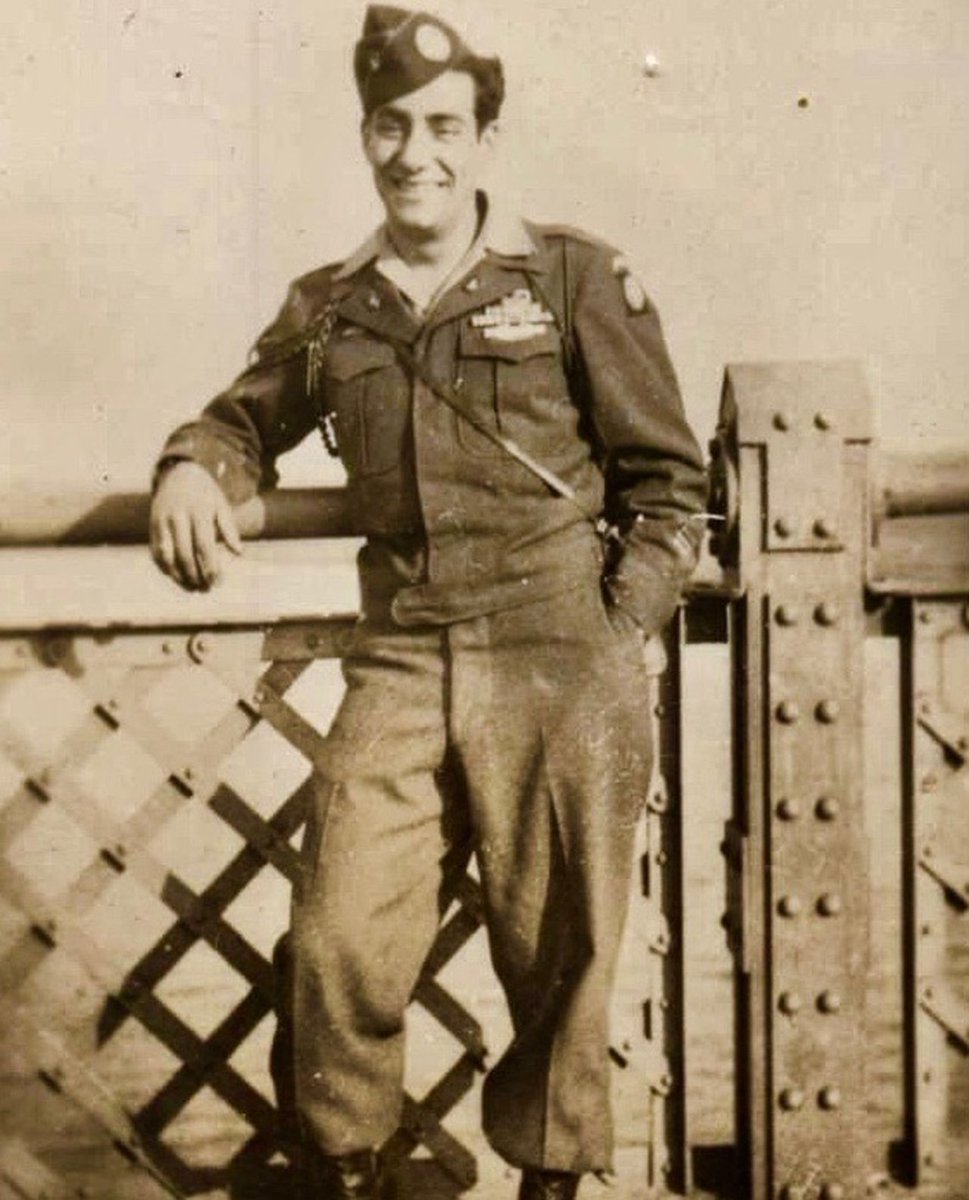They took him from his family. At Elkhorn Residential School, Canada tried to take everything from him.
But Tommy Prince, the great-great-grandson of Chief Peguis, survived.
But Tommy Prince, the great-great-grandson of Chief Peguis, survived.

When Canadian recruiters turn him away several times, he persists. He enlists in June 1940.
By 1942, he is among a select group of Canadians soldiers who merge with the Americans.
They form the First Special Service Force, the forebears of today’s Special Forces.
By 1942, he is among a select group of Canadians soldiers who merge with the Americans.
They form the First Special Service Force, the forebears of today’s Special Forces.

Soon enough, he’s haunting Nazis.
Sneaking behind enemy lines, he regularly raids their quarters as they sleep. He steals the shoes off their feet. He leaves notes.
“They worst is yet to come.”
The Nazis are horrified.
Sneaking behind enemy lines, he regularly raids their quarters as they sleep. He steals the shoes off their feet. He leaves notes.
“They worst is yet to come.”
The Nazis are horrified.

Italy. February, 1944.
Carrying a telephone, he crawls to a farmhouse within 200 yards of the Nazis to report their movements. When the phone line is cut, he is isolated and ineffective.
He abandons the position and heads back to safety, right?
Carrying a telephone, he crawls to a farmhouse within 200 yards of the Nazis to report their movements. When the phone line is cut, he is isolated and ineffective.
He abandons the position and heads back to safety, right?
It’s Tommy Prince. Come on.
He pulls on farmer’s clothes and heads out to tend the field right in front of the enemy. They fall for it.
Pretending he’s tying his shoe, he repairs the phone line and returns to the house.
But not before shaking his fist at some Nazis.
He pulls on farmer’s clothes and heads out to tend the field right in front of the enemy. They fall for it.
Pretending he’s tying his shoe, he repairs the phone line and returns to the house.
But not before shaking his fist at some Nazis.
He stays in the house for two more days calling in artillery strikes and sharing valuable details about the enemy movements.
They give him the Military Medal for his shape-shifting feat.
They give him the Military Medal for his shape-shifting feat.

France. September, 1944.
Sergeant Prince and another soldier are on a reconnaissance mission deep inside Nazi territory. They see the enemy surrounding and outnumbering French partisans.
Two men couldn’t change the seemingly inevitable outcome, right?
Sergeant Prince and another soldier are on a reconnaissance mission deep inside Nazi territory. They see the enemy surrounding and outnumbering French partisans.
Two men couldn’t change the seemingly inevitable outcome, right?
Tommy Prince wasn’t the type to leave people in need.
The two men remain concealed and start picking off enemy soldiers. They surprise the Nazis, inflicting enough casualties to force a retreat.
Two soldiers force the retreat.
The French thought fifty came to their rescue.
The two men remain concealed and start picking off enemy soldiers. They surprise the Nazis, inflicting enough casualties to force a retreat.
Two soldiers force the retreat.
The French thought fifty came to their rescue.
The Americans give him the U.S. Silver Star.
“The keen sense of responsibility and devotion to duty displayed by Sergeant Prince is in keeping with the highest traditions of the military service and reflects great credit upon himself and the Armed Forces of the Allied Nations.”
“The keen sense of responsibility and devotion to duty displayed by Sergeant Prince is in keeping with the highest traditions of the military service and reflects great credit upon himself and the Armed Forces of the Allied Nations.”
After the war, he returns home. Like his fellow Indigenous veterans, he doesn’t receive the same benefits as non-Indigenous veterans.
He risked everything for Canada and returned to the same Canada that still considered him less than equal.
He risked everything for Canada and returned to the same Canada that still considered him less than equal.
Tommy Prince spends years after the war fighting for Indigenous rights.
He fought Nazis for Canada.
Canada fought against him.
At the outbreak of the Korean War, he signs up to fight again. Think about that.
He fought Nazis for Canada.
Canada fought against him.
At the outbreak of the Korean War, he signs up to fight again. Think about that.

In Kapyong, he helps defend the freedom of people he would never meet.
He’s with the Patricia’s when they earn a U.S. Presidential Unit Citation.
He fought for strangers overseas and returned to Canada and the same injustice.
He’s with the Patricia’s when they earn a U.S. Presidential Unit Citation.
He fought for strangers overseas and returned to Canada and the same injustice.

Please understand what Tommy Prince survived.
Please understand what he endured.
The Nazis in World War II.
The Chinese in Korea.
The residential school in Canada.
Canada.
Please understand what he endured.
The Nazis in World War II.
The Chinese in Korea.
The residential school in Canada.
Canada.

Tommy Prince survived the place they called school. Thousands of children did not.
Please read about what Canada did in those places.
Please read this.
nctr.ca/records/report…
Please read about what Canada did in those places.
Please read this.
nctr.ca/records/report…
His friend survived Elkhorn, too.
https://twitter.com/cafinus/status/1401355795841814529
We still see you, Tommy and Colin.
https://twitter.com/shelleyacook/status/1410308705686597652
• • •
Missing some Tweet in this thread? You can try to
force a refresh



















